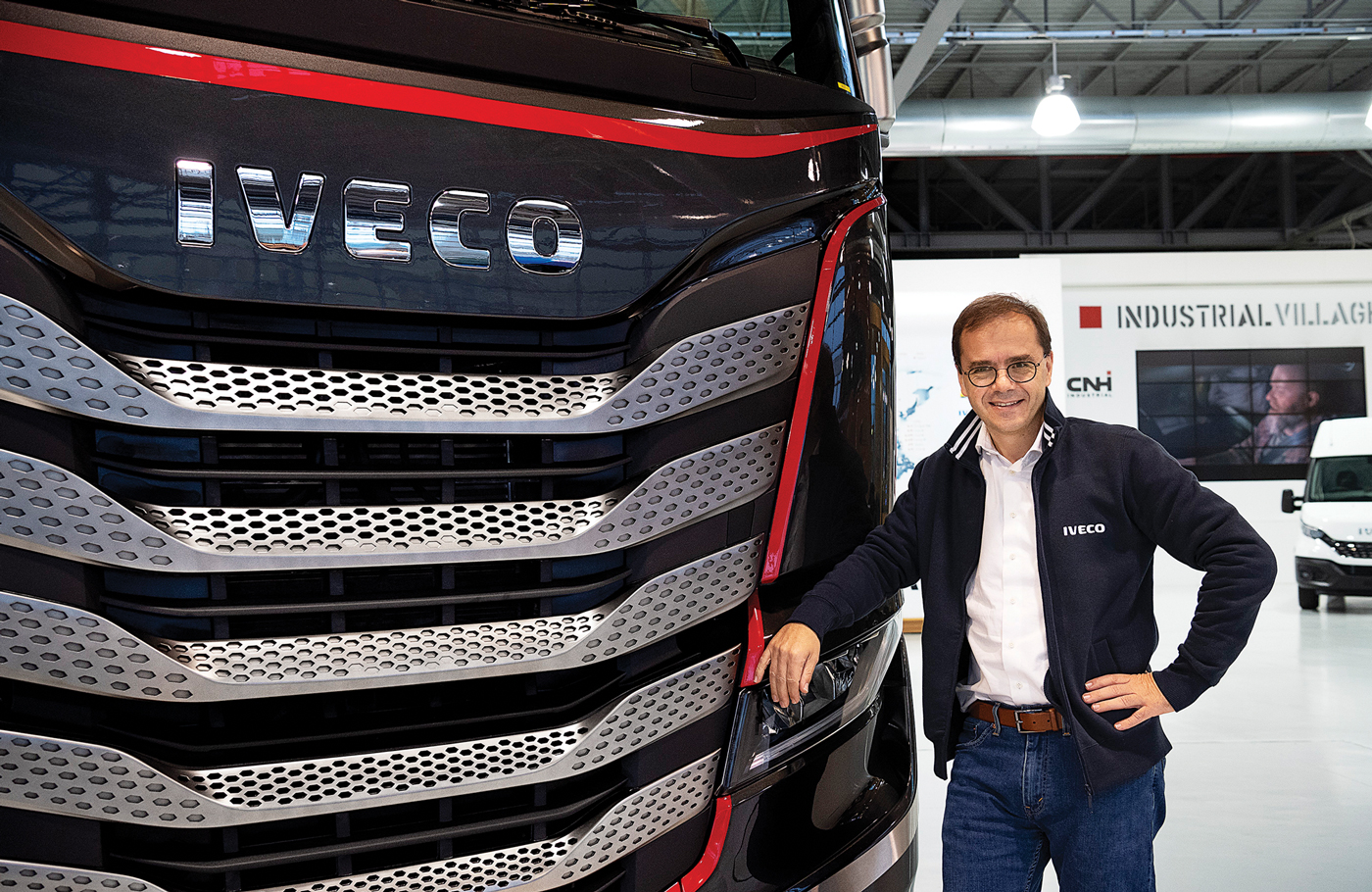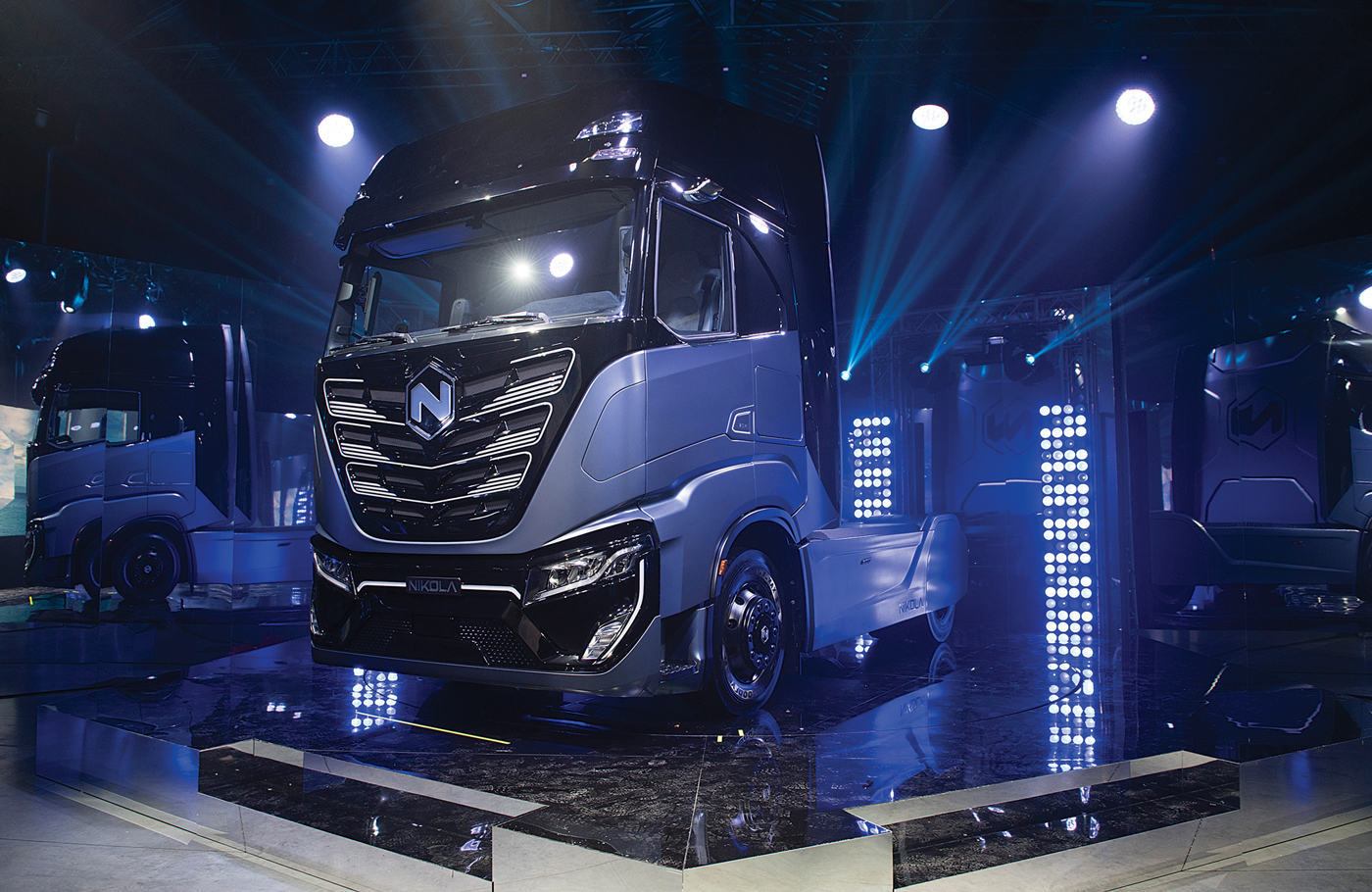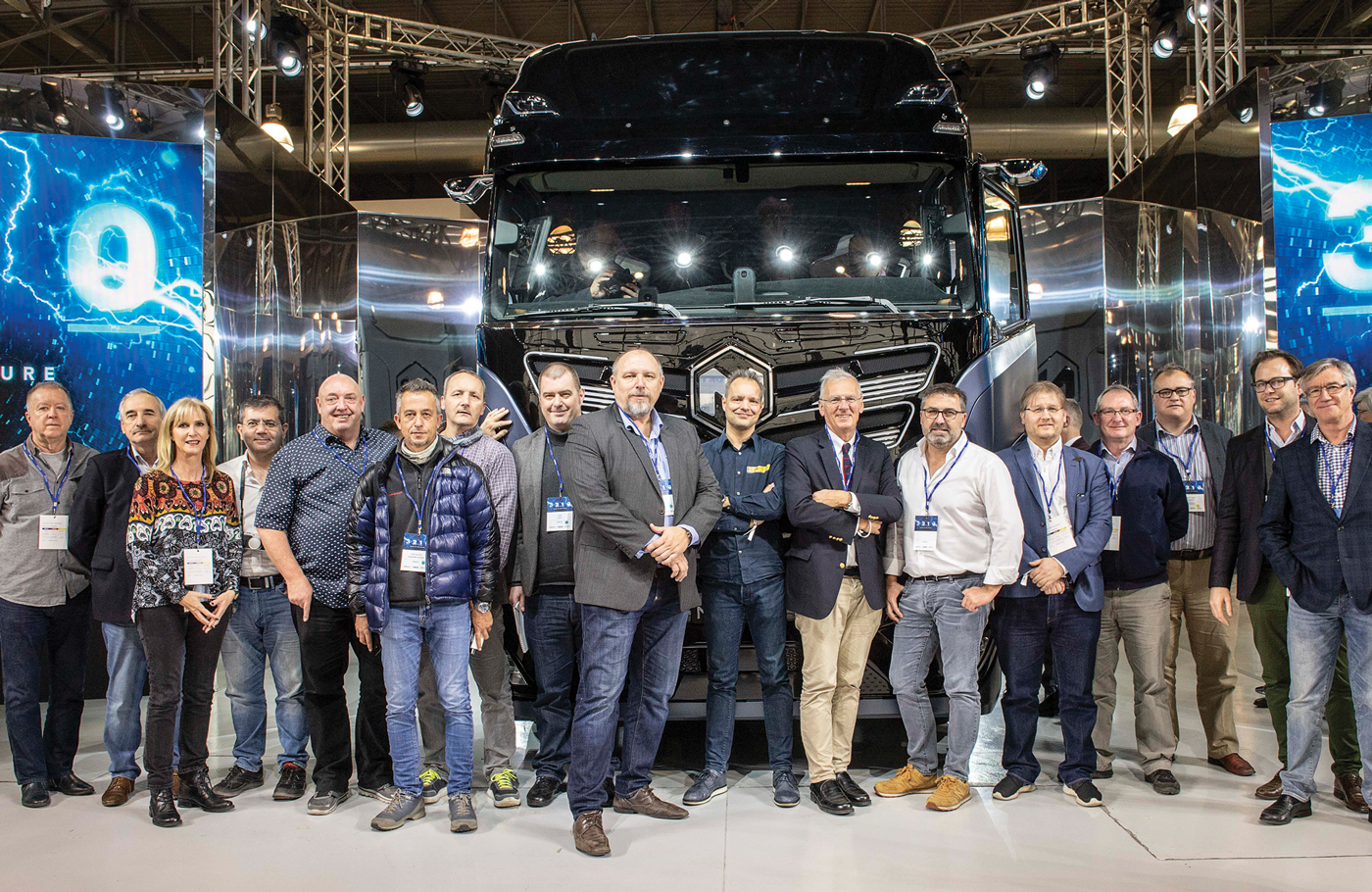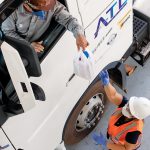“Covid-19 will not stop us”
“Covid-19 will not stop us”
2020 has been a challenging year for us all. However, Thomas Hilse, Iveco brand president, remains optimistic, as GIANENRICO GRIFFINI, president of the International Truck of the Year jury, discovers …
How are you translating CNH Industrial’s Transform2Win strategy into reality? What are you implementing first? How is Iveco preparing for next year’s spin-off?
The most important thing is that the strategy for the spin-off remains valid; nothing has changed despite the unprecedented situation that we find ourselves in. We have a long-term goal – the timeline might change a little, but our ultimate goals will not. We are most definitely still on track with all activities.
CNH Industrial has been preparing for the spin-off and working on the design of the new business, its structures and processes. Due to the current situation, our main focus has temporarily shifted to crisis management, but the strategy remains in place and we are proceeding with it.
From an Iveco point of view, the Transform2Win strategy won’t change at all. The evolution of our product portfolio is on track and moving fast. What we have achieved in just a year is quite amazing.
In April 2019 we launched the new Iveco Daily – we took an outstanding vehicle and made it even better, with advanced driver assistance systems and connectivity. In July 2019, we launched the Iveco S-Way, which I think surprised the industry and our customers. It is a vehicle truly designed around the customers’ needs, and feedback has been extremely positive. At the end of last year, we announced our cooperation with Nikola on hydrogen and battery-electric vehicles (BEVs). I think that we again surprised the industry with this move and with the remarkable speed of delivery: just three months after we signed the agreement, we presented a prototype.

We will launch the Iveco T-Way, our off-road vehicle and the successor to the Trakker, at Samoter (the construction machinery show) in Verona in March 2021. By then, we will have a completely renewed product portfolio across all segments.
Another part of our strategy is the renovation and reorganisation of our entire service network, which fits with the repositioning of our heavy-duty line. We have established a network of dedicated heavy-duty truck stations across Europe to deliver a highly professional service to our customers and maximise the uptime of their vehicles, and these are operating very well.
Then, of course, we are continuing to look at our quality situation, which has dramatically improved.
Last but not least is our quantum leap in connectivity, which will play a key role in how we will provide our customers with the best total cost of ownership (TCO) and fleet management capabilities into the future. We now have our state-of-the-art infrastructure and product, and we will be launching additional connectivity features over time, continuously raising the bar on benefits for our customers.
Fundamentally, Transform2Win will create an on-highway company focused on trucks and powertrains and based on the solid strategy that Iveco has been pursuing for the last year. And the crisis will not stop us. As we say in our brand, “We Are Unstoppable.” Covid-19 will not stop us.
A top priority for Iveco is the repositioning of its heavy-duty trucks. Is the new Iveco S-Way – both in its diesel version and liquefied natural gas (LNG) model – the right product to achieve this target? Why? What feedback have you received so far from Iveco customers in Europe?
Yes, the Iveco S-Way is the right product. The feedback we are receiving from our customers confirms this. They see the progress in Iveco’s heavy-duty proposition. What’s more, large fleet customers who had moved to other brands are now coming back to us for various reasons: they like the Iveco S-Way, its product concept, the cabin which is amongst the best, and it is a very good-looking truck. The second reason is that we are the leader in LNG technology, a solution which we have pioneered for the past 20 years.
Our drivers, too, really like the Iveco S-Way, they talk about it a lot on social media, where they are very active. All this feedback we are getting is testimony that we are on the right track.
Fortunately, we completed the public launches of the Iveco S-Way before the Covid-19 crisis, because for customers it’s essential to experience a truck first-hand, sit behind the wheel and get a real feel for it – our drivers live in the truck! And we were able to offer them this experience: we organised about 130 events all around Europe, with around 20 000 people attending, which wouldn’t be possible now.
And, once the health and safety situation allows our dealers to reopen their showrooms, I am confident that we will continue to attract a growing number of customers.
Is bio-LNG the right solution to manage the energy transition from a traditional diesel engine truck to BEV or fuel cell electric vehicle (FCEV)?
I believe that bio-LNG will be the rocket launcher to reach the moon. It is the only available zero-emission alternative currently on the market. In the last two years,
we have seen roughly 2,5% of the heavy-duty market make the transition to LNG technology, and I believe that it will increase to 5% in the medium term and 10% over the next 10 years.
The enabler for this growth is certainly the expanding LNG fuelling infrastructure across Europe: today we have about 217 stations, and the plan is to increase these to 480.

It is absolutely clear that, in 10 years, there will be more choices for heavy-duty trucks: it won’t be just diesel, or just hydrogen, or just LNG. There will be different solutions in Europe, depending on different customer applications and on the approach to the energy balance that the various countries will take.
Pure electric trucks will account for a small segment and hydrogen will play an important role – there’s absolutely no doubt, this is the future! And there will be a market for LNG, which isn’t just the bridge solution, but will continue to be a valid alternative providing a very interesting economical proposition.
Very importantly, bio-LNG will make a huge difference when it comes to the market. In the last six months, we have seen energy companies make announcements regarding this; for example, Shell has declared that it plans for bio-LNG to account for up to 30% of its LNG supply.
It is very interesting to see that many customers have developed their own bio-LNG sources. We are seeing a growing number of small bio-LNG producers in Italy, Spain and Germany, who are providing customers with the opportunity to operate their vehicles on bio-LNG. These vehicles generate 95% less emissions than with diesel – and, at least for now, at the same cost. This makes a difference: companies like Lidl and Carrefour, as well as beverage producers, are coming on board, wanting to extend their green fleets and saying that, for them, bio-LNG is the only solution.
Iveco and FPT Industrial have put their trust in gas engines for 20 years or more. How do you plan to take full advantage of Iveco’s LNG technology leadership in the major European markets? Do you want to show the customers that LNG is better (or equal) to a diesel truck?
I see a complete shift in our customers’ mindset: we don’t have to convince them of the environmental and economic advantages of natural gas anymore, they already know, and they are coming to us!
I believe that this transition will accelerate post-Covid-19. I think that it is an opportunity, and we need to invest in the technology and processes that will take us into the future. At Iveco, we are working very hard with the automotive association and with governments to ensure that we use the crisis as an accelerator for these technologies.
We will take full advantage of this opportunity and, at the end of 2020, we will extend our portfolio through our cooperation with Nikola, with an electric truck which will be followed by the hydrogen version.
If you look back at Iveco’s results last year in the major European markets, how would you judge them?
We achieved very good results, there’s absolutely no doubt. Iveco sold 125 000 vehicles, of which about 100 000 were in Europe.
We are doing well in the Daily segment, where we have been a market leader for 40 years. With our market share at around 12% on average, we are in a very good position in a segment that is set to continue growing. Post Covid-19, we will see a change in customer behaviour around the use of the Internet and digitalisation, and the Daily is very well positioned to meet the new demands with its advanced connectivity and related services. Also, I believe that the markets for last-mile delivery in this segment and small businesses will come back quickly, and we are in a strong position to meet this demand.
The Eurocargo is an excellent product, very versatile, and I think it will maintain its position in special applications in the public services and military environments.

How is Iveco supporting its customers and the sales and service networks in these difficult times?
Our customers are suffering at the moment, they are dealing with difficult challenges, such as the heavy health and safety obligations, and their drivers’ exposure as they drive through European countries touched by the pandemic and border controls.
We are doing everything we can to remain close to our customers, to encourage them. We are very proud of our truck drivers, and the mechanics who are keeping the workshops open to provide this vital service – in fact, all of our people who are working to ensure our customers have the support they need. We are really thankful for every person who is out there, working on the front line and doing their job during these very challenging times.
We are also working very closely with our European Dealers Association, Gacie, to ensure that our dealers have the funds to get through this crisis. The situation varies, because of the different ways countries are affected by the infection and the different governmental regulations, so we are looking at solutions country by country.
I believe that, as a brand, in difficult times we have to be there for our customers and our partners. That’s what makes a great brand – and we aspire to be a great brand.
How important is connectivity and the related advanced service offering for Iveco’s new product range?
We need to approach our offering from a customer’s perspective, and for them maximising uptime and reducing operating costs is the key.
We need to be there for our customers as a partner, and this can’t be done without professional and high-quality services and connectivity. That’s why, in the last 18 months, we have completely overhauled the entire communication infrastructure on our vehicles. We now offer state-of-the-art technology with more and more services that add value for our customers.
These include our flexible maintenance and repair contracts, but also other very interesting services, such as fuel advising to help customers reduce their consumption. We can tell them how their driver’s on-road behaviour influences their fuel consumption and give them recommendations on how to improve.
The Iveco and Nikola partnership: can you outline in some detail the next steps in introducing BEV and FCEV trucks in the market?
We are working full force with our American partners. Luckily, modern communication technology makes this possible, so we are not slowing down.
We expect to begin testing later this year, as we announced. We recently communicated that the production location of the Nikola Tre in Europe will be Ulm, in Germany. This, I believe, is a very smart move for us: it is right in the heart of the European supplier hotspot for hydrogen, and in a state that is very supportive of this investment. We also have a very large part of our heavy-duty vehicle development team in Ulm.
We are now working on the technical development of the vehicle. We are at a very advanced stage and on schedule to have the electric version of the Nikola Tre in 2021 and the fuel cell version in 2023. So, there is no change, we want to be unstoppable here!
BEV and FCEV trucks will be sold by the Iveco sales network under the Nikola brand: how do you think the market will react?
I think the market will react very positively because we are two partners with significant synergies. Nikola is the market leader in fuel cell technology for trucks, so we are very confident that in them we have found a partner that has the edge in this technology. On the other hand, we are able to contribute 45 years’ experience in producing, running and testing heavy-duty trucks in Europe.
Published by
Focus on Transport
focusmagsa




